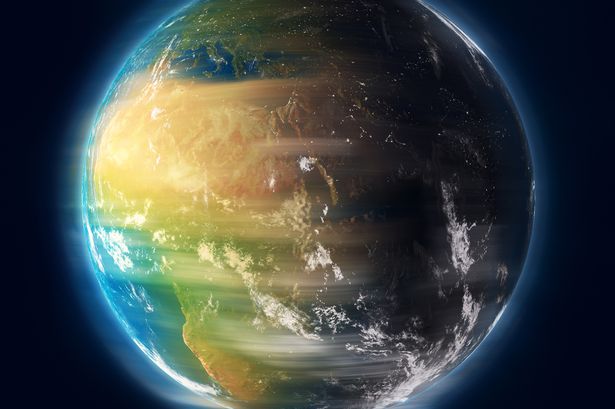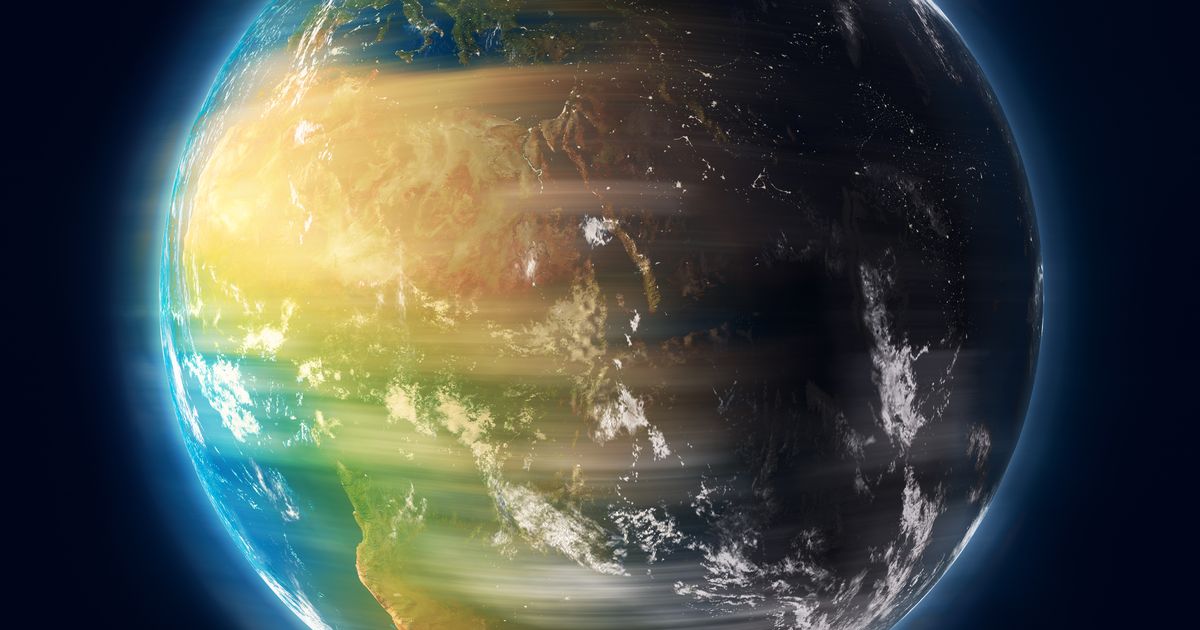Earth’s spin has been mysteriously speeding up for years, making July 22 one of the shortest on record Today, Earth is spinning faster than usual(Image: Getty Images)
Today, Earth is spinning faster than usual(Image: Getty Images)
If you’re counting down the hours until the weekend, you’re in luck. Today (July 22, 2025) marks the second-shortest day ever recorded.
Earth will complete its spin 1.34 milliseconds faster than the usual 24 hours. The change is so tiny that only ultra-precise clocks can measure it, so you won’t feel any different – but the phenomenon has baffled researchers.
Earth’s spin has been mysteriously speeding up in recent years, with July 9, July 22 and August 5 all unusually short days.
Are our days getting shorter?
The rotation of Earth isn’t fixed; it is influenced by many factors, including the Moon, the Sun, shifting oceans, and even what’s happening inside the planet.
For billions of years, the Moon’s gravity has been acting like a handbrake slowing down our spin in a process known as ‘tidal braking’. Hundreds of millions of years ago, a day on Earth was only about 23 hours long, and research suggests days lasted just 19 hours during Earth’s earliest history.
READ MORE: What would happen to Earth if the Moon suddenly disappeared?
However, now the opposite is happening – and our planet is spinning faster. Scientists noticed this trend in 2020, when Earth started breaking its own records for the shortest day.
The current fastest spin record was July 5, 2024, when the planet finished its rotation 1.66 milliseconds earlier than a standard Earth day of 86,400 seconds.
Why is Earth speeding up?
There’s no single explanation for why we’re recording shorter days, but there are a number of theories.
 Scientists may have to claim back a ‘negative leap second’ in 2029(Image: Getty Images)
Scientists may have to claim back a ‘negative leap second’ in 2029(Image: Getty Images)
Changes deep inside Earth
The slowing of the liquid core inside Earth may be shifting momentum, making the crust and mantle spin slightly faster.
Melting ice and shifting water
Climate change is redistributing Earth’s mass. As polar ice melts and sea levels rise, this may be subtly altering our planet’s spin. However, research suggests this could be slowing Earth’s spin, not speeding it up.
Last year, NASA scientists found that the movement of ice and groundwater linked to climate change has increased the length of our days by 1.33 milliseconds per century between 2000 and 2018.
Seasonal ‘wobbles’
Earth’s mass isn’t evenly distributed. Richard Holme, a geophysicist at the University of Liverpool, told Live Science that when trees grow leaves in northern summers, this moves mass further from the spin axis and slows Earth slightly. This is because there is more land in the northern hemisphere than the south. When this mass shifts back, the planet spins faster again.
As Leonid Zotov, an expert in Earth’s rotation at Moscow State University told Timeanddate: “Most scientists believe it is something inside the Earth. Ocean and atmospheric models don’t explain this huge acceleration.”
What happens if Earth keeps spinning faster?
The changes to Earth’s spin are too small for humans to detect. However, they do matter for timekeeping. If the trend continues, scientists may need to introduce a ‘negative leap second’ in 2029, which essentially means deleting a second from atomic clocks to keep out time in sync with Earth. This has never been done before.
For now, all you need to know is that today will fly by.
